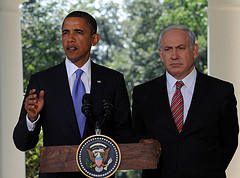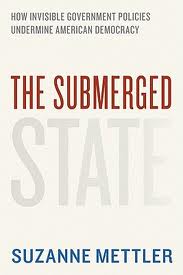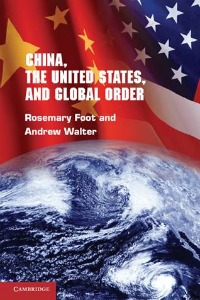Santorum, Catholicism, and the American ‘Wall of Separation between Church and State’
When Rick Santorum claimed that JFK’s 1960 ‘separation of church and state’ Houston campaign speech made him want to throw up, he was rightly criticized for it. Kathleen Townsend for the Washington Post said ‘Either Santorum doesn’t know his American history or he is purposefully rewriting it.’ Working in the wonderful New York State Archives in Albany this week I found a great deal of material on Catholic religious school aid controversies, which shed light on the history of US anti-Catholicism and ‘Wall of Separation between Church and State’ rhetoric. Since Santorum is a Catholic and so was JFK, along with fully a quarter of all Americans, examining such materials may help us to understand why Santorum made such remarks, …

Obama must stand up to Netanyahu
Reposted here is my op-ed in today’s Independent on Obama’s meeting with Netanyahu. It is clear what kind of Israeli prime minister President Obama will be receiving at the White House today. Benjamin Netanyahu is a bellicose, right-wing Israeli nationalist, a rejectionist on the subject of Palestinian national rights, and a reactionary who is deeply wedded to the status quo. Nationalism has an in-built tendency to go to extremes and Netanyahu’s brand is no exception. A nation has been defined as ‘a group of people united by a mistaken view about the past and a hatred of their neighbours’. This definition fits the Likud leader on both counts: he has a selective and self-righteous view of his own country’s history and …

The fight goes on—from Arizona and Michigan to Super Tuesday
Mitt Romney won yesterday’s two primaries in Arizona and Michigan, but he didn’t win by enough to (re)establish a sense of inevitability around his candidacy. He has been the favourite for so long that everything but decisive victories ends up being framed as a bit of a disappointment. Here is Whit Ayres, a Republican political operative, speaking to the Washington Post a few days before this week’s primaries—“if [Romney] wins Michigan by double digits, especially if combined with a double-digit Arizona win, then all the chatter will die down just like it did after Florida.” But Romney didn’t win Michigan by double-digits, and the chatter hasn’t died down. Though Santorum lost both states, no one seems to really hold it …

Book Review: The Submerged State: How Invisible Government Policies are Undermining American Democracy
The Submerged State: Atlantis? No, a slim and highly readable volume in which Suzanne Mettler describes how certain public policies have become highly resistant to reform and damaging to American democracy. By ‘submerged state’ Mettler means a set of indirect government subsidies and benefits whose size and beneficiaries, indeed whose very existence, is largely invisible to the public. Some types of governmental intervention are highly visible: most citizens are aware of them and know something about what they are, how they work and who benefits from them. For instance, most people know about the veterans’ benefits offered by the G.I. Bill. But others are more ‘submerged’, hidden either because they are channelled through private delivery organizations or because they come to …
The U.S. Needs a Grand Strategy, Not Grandstanding
In the New Hampshire debate, Mitt Romney trumpeted his willingness to engage China in a trade war. Romney’s longstanding efforts to paint himself as someone willing to stand up to China exemplify an alarming trend of China-bashing in U.S. politics. Rick Santorum, among others, has echoed Romney, declaring, “I want to beat China.” Such statements are primarily targeted at shoring up political support and secondarily at painting President Obama as being soft on China. We should not take them as an accurate indication of future policy. And despite this overriding political calculus, these remarks are on to something – Beijing’s currency manipulation gives China a competitive advantage in global trade, and its abuse of intellectual property rights ought to be …

China, the United States, and Global Order: An Interview with Professor Rosemary Foot
Rosemary Foot is a Professor of International Relations and John Swire Senior Research Fellow at St Antony’s College, Oxford. She has been a celebrated China scholar since completing her doctorate at the London School of Economics on Sino-Soviet relations and West Asia. Here, Professor Foot takes a moment to speak with Politics in Spires regarding her most recent book. Congratulations, your latest book, China, the United States, and Global Order has been praised by Foreign Policy Magazine as one of the 23 Essential Readings of 2011. Could we begin with you telling us a bit about the efforts behind this work? The book was a collaborative effort.* My co-author [Andrew Walter] is a specialist in international political economy, and I …

“Hi, I’m a volunteer with the Mitt Romney campaign, calling you from my computer…”
So Mitt Romney won what the Washington Post calls a “decisive victory” in Florida yesterday, and while the Republican presidential primary isn’t quite over (a majority of the votes still went to his three remaining rivals, donations keep coming in to Newt Gingrich especially), the former Massachusetts governor is now well-positioned to lock up the nomination on “Super Tuesday,” March 6, where people in eleven states cast their votes. If Romney becomes the candidate, a closer look at his current campaign can help us understand how he will fight the general election. In past cycles, most recently of course in 2008, the way candidates fought their primary gave many clues to how they ended up fighting the general election—in terms …
What Obama didn’t say about Iraq
The Iraq war was not a success. It was a failure. A dismal failure, and Western governments should learn from their mistakes. Of course, nobody can deny the brutal crimes that Saddam Hussein was responsible for. The savage attacks against the Kurdish population in Northern Iraq, the invasion of Kuwait and the terrorising of innocent civilians in the town of Dujail after an assassination attempt serve as prime examples of the sadistic nature of the Iraqi dictator. The world is definitely safer without him, but this in no way outweighs what the world, and in particular the Iraqi people, have had to give up. Transparency International’s most recent Corruption Perception Index (measured in 2010) ranked Iraq as having 175th most …









